Audio
Radio drama
Hear This by
Vision Australia3 seasons
10 January 2025
29 mins
Reviews of varied books from the Vision Library - some centring on radio stations or radio plays.

This weekly series from the Vision Australia Library service updates its publications and events for people with blindness and low vision.
Host Frances Keyland presents reviews, readings, reader recommendations and occasional interviews.
In this edition: various works are reviewed and sampled, including some with themes around radio stations or radio plays.
00:10 Theme
Take a look. Take a look inside the book. Take a look...
00:24 S1
Hello and welcome to Hear This. I'm Frances Keyland, and you're listening to the Vision Australia Library radio show. On today's show, we have a look at a few varied books. So I hope you enjoy the show. Let's start today's show with a couple of mysteries that centre around radio stations or radio plays.
The first one is Almost Blue by Carlo Lucarelli. A serial killer is terrorising the students of Bologna. Rookie female detective Grazia Nigro is determined to solve the case. Only one witness can positively identify the killer, and he's blind. Simone spends his days in solitude, listening to Elvis Costello's Almost Blue and scanning the radio waves of the city to eavesdrop on other people's lives. He likes to imagine what people are like based on the tone and colour of their voice, and his acute hearing sets alarm bells ringing upon hearing the voice of the killer. Let's hear a sample of Almost Blue by Carlo Lucarelli. It's narrated by Daniel Philpott.
01:35 S2
The sound of a record dropping onto a turntable is like a short sigh, with a touch of dust mixed in. The sound of the automated arm rising up from its rest is like a repressed hiccup, or a tongue clucking dryly, a plastic tongue. The needle as it glides across the grooves, sibilants softly and crackles once or twice. Then comes the piano. A dripping tap, then the bass buzzing like an enormous fly at a window. Finally, the velvety voice of Chet Baker singing almost blue. If you listen carefully, you can almost hear him taking a breath and opening his mouth to sing the first A in almost. It sounds so tight, it seems more like a long. Oh. Almost blue with two pauses.
He takes two breaths. You just know. You can tell that his eyes are closed. That's why I like Almost blue. You have to sing it with your eyes closed. My eyes are eyes are closed. Even when I'm not singing. I'm blind. I've been blind since I was born. I've never seen colors or light or movement of any kind. I listen. I scan the silence around me, the way an electronic scanner sweeps the airwaves for sounds and voices, tuning automatically into any and all frequencies.
03:31 S1
And that was Almost Blue by Carlo Lucarelli. Carlo is [spells author's name]. The book is a short one, goes for five hours, and it's part one of the Inspector Nigro series. Part two is called Day After Day. Almost Blue was shortlisted for the Gold Dagger award in 2003 when it was it was published, and he was born at Parma in Italy.
The next book is The Darkness Knows and this is by Cheryl Honigford. Bright lights, big city, brutal murder, Chicago 1938. Late one night before the 10:00 show, the body of a prominent radio actress is found dead in the station's lounge. All the evidence points to murder. And one young up-and-coming radio actress, Vivian Witchell, as the next victim. But Viv isn't the type to leave her fate in the hands of others. She's used to stealing the show alongside charming private detective Charlie Haverman. Vivian is thrust into a world of clues and motives, suspects and secrets. And with so much on the line, Viv finds a detective work doesn't end when the on air lights go out. Let's hear a sample of The Darkness Knows by Cheryl Honigford. It's narrated by Julie Mackay.
05:00 S3
The theme music crept in from the organ in the far corner of the of the room, signalling that another episode had reached its dramatic conclusion. Bill Purdy, the show's announcer, stepped up to the microphone to end the show. Vivian held her breath until she heard, and Vivian Witchell was heard as Lorna Lafferty. She didn't think she'd ever grow tired of hearing those words. Bill deftly sped up to complete the voiceover, before the second hand of the large studio clock swept up to the hour, indicating the very dot of 8:30 p.m.. Then the chimes rang to signal a change of programming.
As soon as the on air light switched off, they all heaved a collective sigh of relief. Good work everyone, Joe said over the speaker from behind the thick glass of the control room. But there's no time to rest on our laurels. We'll do it all again at 10:00 for the folks on the West coast. He switched off the microphone, paused, and then switched it back on. And let's all try to remember our cues next time around. Vivian quickly dipped her head to avoid meeting anyone's eyes and pretended to study her script. She'd been doing small parts on shows at WCAI for over a year now, and there was certainly no excuse for missing a cue.
Lorna Lafferty and The Darkness Knows were by far the biggest and best things to ever happen to her, and she couldn't afford to muck them up, not when she was just starting to get noticed. In fact, Vivian had just gotten her first mention in the Chicago Tattler section of this week's Radio Guide magazine. She'd read and reread the blurb so many times she'd committed it to memory.
06:59 S1
And that was The Darkness Knows by Cheryl Honigford. Cheryl is [spells name]. That book goes for ten hours and 20 minutes, and it's part one of the Viv and Charlie Mysteries. And there are none others in the library collection at the moment.
Now to a couple of Australian books. The first one is To the River by Viki Wakefield. When a fire in a remote caravan community kills nine people, including 17 year old Sabine Kelly's mother and sister, Sabine confesses to the murders shortly after she escapes custody and disappears. Recently made redundant from marriage, motherhood and her career, journalist Rachel Weiderman has long suspected Sabine made her way back to the river. Now, 12 years after the caravan murders, she has the time and the tenacity to corner a fugitive and fugitive and learned the story of the year. Let's hear a sample of To the River by Viki Wakefield. It's narrated by Casey Withers.
08:11 S4
The cliffs at Shallow Bend are painted red and gold. The willows sweep the water with loose limbs as the river brings Sabine home. It's the last day of summer and change is coming. Time of slowly on the river. She hasn't seen her grandfather since late winter, but it seems like longer. Pop-Pop keeps an eye out for her, but his hearing isn't what it used to be. And he sleeps like the dead. Sabine has mastered the art of cutting the houseboats engine. Reading the current. Her last visit. He didn't know she was there until she had steeped a pot of tea and set the mug in his hand.
He won't call her. Won't pick up if she calls. It's for her protection, he says. She thinks it has more to do with his distrust of technology. I have that in common. Pop believes microwave ovens can record conversations. He blames his cancer on the one she gave him. Cancer has gone and he stashed the microwave in the shed, its inner parts buried in the midden for good measure. He eats his meals cold, straight from the can. Blue sits in his usual spot at the helm. He turns his back on the land and stares wistfully at the water, as if to say, this can't be right. He's more seal than dog, won't eat red meat, only fish and occasionally chicken. Kibble is an abomination. Sabine often catches him nosing biscuits over the side of the houseboat for the carp.
She looks around, pops tinny rocks gently in her wake, and the orange flag tied to the jetty post reassures her the area is clear of surveillance. The houseboat drifts into a space near the opening of the backwater, a soft bump and the rear swings around. Blue loses his balance, his claws scrabbling on the deck. Sabine laughs and blue, indignant barks once she shushes him with one finger. His bark sets off the kennel dogs across the river, and for the first time he shows interest in going ashore.
10:11 S1
And that was a sample of to the River by Viki Wakefield. Viki is [spells author's name]. And that book goes for 9.5 hours. There are other books in the collection by Viki Wakefield, including After You Were Gone, which is another mystery family mystery. What happens to a family when a child goes missing in a busy street market? Abby lets go of six year old Sara's hand. She isn't a bad mother, just exhausted. When she turns around, her daughter isn't there. And six years later, the story picks up again.
There's also All I Ever Wanted, which is available also in Braille. Mim knows what she wants and where she wants to go. Anywhere but home. Stuck in the suburbs with her mother who won't get off the couch. And two brothers in prison. She's set herself rules to live by, but she's starting to break them. Now Mim has to retrieve a lost package for her mother. Does this make her a drug runner?
There's also a couple of other... your sort of very... gritty, I guess, coming of age stories. So there's also Friday Brown - 17 year old Friday Brown is on the run, running to escape memories of her mother and of the family curse. So that's in Braille also. And... Inbetween Days - at 17, Jacqueline Bates is all grown up. She's dropped out of school, she's living with her runaway sister Trudy, and she's in secret, obsessive love with Luke, who doesn't love her back. And she's stuck in Moebius, a dying town with the macabre Suicide Forest its only attraction. Stuck working in a roadhouse and babysitting her boss's demented father.
To the River was her first... adult psychological thriller. And it was published in 2024. Goodreads gives to the River four out of five stars, and Amazon.com gives it four and a half out of five stars.
And now to another Australian novel, Little People by Jane Sullivan. When Mary Ann, an impoverished governess, rescues a child from the Yarra River, she sets in motion a train of events that she could never have foreseen. It is not a child she is saved, but general Tom thumb, a star of a celebrated troop of midgets on their 1870 tour of Australia. From the enchanting Queen of beauty Lavinia Stratton to the brilliant pianist Franz Richardson, it seems that Mary Ann has fallen in among friends. She soon discovers, however, that relationships within the troop and its entourage are far from harmonious. Jealousy is rife, and there are secrets aplenty. Even Mary Ann has one of her own. Relief gradually turns to fear as she realizes that she may be a pawn in a more dangerous game than she imagined.
Let's hear a sample of Little People by Jane Sullivan. It's narrated by Carroll Baker.
13:14 S5
When darkness came, I changed into my nightgown and brushed my hair like a good girl. But in the mirror was a witch face. I could not sleep because the spirits argued. And the whispers crescendoed to a roaring. So I rose from my bed, holding the red cigar box crept onto the moonlit lawn. This was what mad women did. They let down their hair and stumbled about in their nightgowns. The roaring was in the Yarra Yarra. At the end of the lawn was the river. A black racing tide splintered with fragments of moon. I had not thought a river could run so strong. Come! It roared at me.
Was that what I was looking for? Where was the best place? Here? At the edge of the water. A few steps in or from the bridge where my weight would carry me deep. Either way would be quick. I opened my lacquered box, inhaled the scent of tobacco. Turned it upside down. Shook out all the smiles and hurled it into the water. The wind whipped my hair. Come. Roared the river. Then a new thought anchored me. A firm little voice. You are not mad enough for this. Go back to bed. You will have to carry your burden as best you may. I turned up river towards the bridge.
On the parapet at its highest point, I saw a white shape, like a bundle of clothing. As I watched, the shape expanded into a star with five stumpy points. The The little star clutched and held itself around the middle, jerked and flailed as it faced down to the water. A child, sick or frightened or trying to pass water.
15:13 S1
And that was a sample of Little People by Jane Sullivan. Jane is [spells name]. And that's available in Braille as well. Little People. There's also another book, Murder in Punch Lane, another novel set in Melbourne, 1868. I'm on a website, The Historical Novel Society. So again, if you want to look that up, it's Historical Novel Society, all one word... dot org. And they have a review of Little People here. The review is by Edward James. He writes... This is a Gothic novel set in Australia. Unbelievable. Australia must be the least Gothic country on earth. But here it is.
He does conclude... The story comes to a very Gothic climax in the in the museum. And yes, you can have Australian Gothic and this is a very good novel of its type. And there is an interview on the Garrett Podcast, the Garrett Podcast with Jane Sullivan, and that is with the host, Astrid Edwards.
The next book is by Hannah Rachelle, and it is The Shadow Year. On a sultry summer's day in 1985, friends stumble upon an abandoned lakeside cottage for Kat and her friends. It offers an escape, a chance to drop out for a while with lazy summer days by the lake and intimate winter evenings around the fire. But as the seasons change, tensions begin to rise and when an unexpected visitor appears, nothing will be the same again. Three decades later, Lyla arrives at the same remote cottage. With her marriage in crisis, she finds solace in renovating the tumbledown house. Little by little, she wonders about the previous inhabitants. How did they manage in such isolation? Most disturbing of all, why can't she shake the feeling that someone might be watching her?
Let's hear a sample of The Shadow Year by Hannah Richell. It's narrated by Anna Bentinck.
17:13 S6
Leila sits at one end of a deserted picnic bench with a takeaway coffee cup before her. Although it's warm out, the warmest it's been for a while. The park is half empty. It's that strange quiet hour when workers have retreated back to their offices after lunch. But the schools are yet to spill children out of their doors. From where she sits, Leila can see through the picture window of the Park Cafe, where a woman restocks the drinks fridge, and a little further away to where a council worker bends over a bed of ragged marigolds. An empty can clatters past him, caught in the breeze.
Closer. In the shade of a of a tall plain tree stands a pram. There is a baby asleep inside. Lila can just make out the curve of her face above a pale pink blanket. Her cheeks are rosy and one dark tuft of hair escapes from beneath her cotton hat. Lila watches, fascinated as the infant grimaces in her sleep, her eyelashes fluttering once or twice before falling still again. The baby's mother is over by the paddling pool. She has taken off her shoes and socks and is splashing through the shallows with a young boy of about 2 or 3. Lila sits on the bench and watches them from behind, dark sunglasses, twisting her coffee cup in her hands.
Look, mummy, a bee! The boy points to something in the water and his mother approaches and bends down next to him. Leela takes a sip of her coffee and allows her gaze to drift back towards the pram. She knows the model. She knows that the break is on.
19:09 S1
And that was The Shadow Year by Hannah Rochelle. Hannah is [spells name]. And that novel goes for 14 hours and ten minutes. This was originally published in 2013 and it was Hannah Rochelle's second novel. There are also two other books by Hannah Rochelle in the collection, there is The Secrets of the Tides, set around family secrets, and that is available in Braille as well. And there is also The Peacock Summer. Jodi Lee in the Newtown Review of Books from the 19th of June 2013, says... The Shadow Year is a page turner with a chilling and unexpected mystery at its heart. The story. This is a story of resolution. All strands of the plot are neatly tied. Plenty of cryptic clues are scattered throughout to keep the reader guessing right to the end.
And on her website, Hannah Rochelle, she writes... Hello, I'm Hannah, a writer of suspenseful novels about families and friends tangled in secrets and lies. I'm drawn to buildings that creak with stories, to landscapes that shape the characters moving through them, and to the rich and often complex relationships between mothers, daughters and sisters. I like to explore the darker side of love and loss in my writing, but I'm drawn ultimately to the light and resilience that can be found when facing life's toughest challenges.
Now to Andrew O'Hagan and his novel The Illuminations. Standing one evening at the window of her house by the sea, Anne Quirke sees a rabbit disappearing in the snow. Nobody remembers her now, but this elderly woman was, in her youth, a pioneer of pioneer of British documentary photography. Her beloved grandson Luke, now a captain with the Royal Western Fusiliers, is on a tour of duty in Afghanistan, part of a convoy taking equipment to the electricity plant at Kajaki. Let's hear a sample of The Illuminations by Andrew O'Hagan. It's narrated by Kathleen McCarron.
21:21 S7
Snow was falling past the window and in her sleep she pictured a small girl and her father in a railway carriage. The train passed into Ayrshire and the girl looked at nothing over the fields. Losing herself in a sense of winter and the smell of soap on her father's hands. It's cold, Mog. He carried a light for her all his life and proved she was easy to love. Maureen opened her eyes and found that 60 years had gone by in an instant. Snowflakes poured from the streetlamp like sparks from a bonfire. The night was empty and there wasn't a sound in the flat, except for the echo of yesterday's talk shows.
This weather would put years on you. The sentence ran through her mind and then she wiped her eyes. Things are slow at that hour, and you can easily miss a knock at the door or someone calling your name. Her memory had taken her to another place where snow blew around a vanished train, and now she was home in her own warm bed and already tense for the day's share of things sent to try her. Her thoughts came out at night like mice, and the old scratching woke her up. How hard can it be to stop what you're doing for five minutes and dial your mother's number? I could be lying dead, thought Maureen. You give them the best years of your life, and then you get the sob stories, the hard done to stuff, as if you hadn't given them everything under the sun.
She moved the pillows up. They have short memories. No, she didn't take them to art galleries. And no, she didn't sit down with the homework. She was too busy putting a meal on the table. Short memories, she thought again, looking to the window.
23:20 S1
And that was The Illuminations by Andrew O'Hagan. Andrew is [spells author's name]. And that book goes for nine hours. The Illuminations is was published in 2015, and it's O'Hagan's fifth novel, and it was long listed for the 2015 Man Booker Prize.
We're about a month away, nearly exactly a month away from World Radio Day, which is on February the 13th of every year. This was proclaimed in 2011 by UNESCO. And I'm here on their website at the moment. And they say... In an era marked by the dizzying speed of technological innovation and the rapid obsolescence of one shiny new platform after another, radio is beginning its second century of service as one of the most dependable and widely utilised forms of media in the world.
This year's theme for Radio World Radio Day is Radio and Climate Change. Again, from the UNESCO site, it says... They say in the age of artificial intelligence, alongside ubiquitous social networks, quality radio is still universal and popular, considered to be the most reliable medium. Beyond popularising environmental concepts, broadcasting verified information independent of economic, ideological and political powers, radio can influence listeners' perception of climate change and the importance attached to the subject on air, via live stream or on demand radio can help shape the public agenda with the potential to influence public affairs.
So they go on to say... Select carefully your information sources. Broadcasters need to pay closer attention to the quality and diversification of information sources as their weight has increased in the treatment of climate change related information. Deconstructing the arguments of climate skeptics. Taking stock of greenwashing. Deciphering economics of ecology. Reporting on the divergent treatment of climate activists, investigating the lack of action or the obstacles to solutions all require expert, diverse and reliable sources.
In the event of environmental disasters, radio often becomes the only source of information and support for populations as it operates, even without electricity or internet, and can reach a very large number of people at the same time. And it's not affected by terrestrial or satellite distribution problems. In this way, broadcasters maintain the communication system that saves lives in emergency situations. The spread of misinformation and disinformation on climate change is a growing challenge, reinforced by the multiplication of voices expressing themselves on the subject, notably through social networks.
Radio broadcasters, as vectors of credible, sourced and verified information, are thus essential to expose false news. The bond of trust that binds them to their listeners makes their programming a privileged space for raising awareness of climate change, environmental issues, and natural disasters. Broadcasters are also involved in media and information literacy, awakening their listeners to the need to develop a critical mindset to apprehend the various sources of information they are confronted with on a daily basis.
So World Radio Day 2025 celebrates radio broadcaster's efforts to equip citizens with the competencies they need to better understand and to tackle climate crisis. If you want to read through any of this as well, and there are lots of links to different resources, you can go to UNESCO dot org. That's unesco.org - and look up World Radio Day and all of the information is there. But. World Radio Day coming up February the 13th.
Thank you for joining us on here this today. I'm Frances Keyland, and keep in mind the UNESCO World Radio Day coming up on February the 13th. I had a little bit of a think about radio and the part it's played in my life as a child, and I remember listening to The Goons with my Dad. And even though a lot of the humor was beyond me back then, my Dad would be laughing uproariously. And I remember laughing with him and gradually learning to love The Goons. So that's an early radio memory for me. If there's any memories that creep into your mind, send them through. Send an email through. Or just give a call because I think nearly everybody has a radio memory and maybe many memories.
If you would like to join the library, if you would like to recommend books or let people know about your radio memories, the email is library@visionaustralia.org - that's library at Vision Australia dot org - or you can call 1 300 654 656. That's 1300 654 656. Have a lovely week and we'll be back next week with more Hear This.
Continue listening

On Hear This, latest books in the Vision Australia library. This edition, award-winning Oz fiction.
Australian fiction
Hear This by Vision Australia
4/8/2023
•28 mins
Audio

Books from the Vision Australia library - this episode featuring memoirs and family histories.
Family histories
Hear This by Vision Australia
11/8/2023
•27 mins
Audio

This edition: Michael Parkinson remembered and an assortment of latest books from the Vision Australia library.
Vale Michael Parkinson
Hear This by Vision Australia
18/8/2023
•26 mins
Audio

Hear This reviews latest books from Vision Australia library - this edition starting with two Booker Prize aspirants.
Booker Prize hopefuls
Hear This by Vision Australia
25/8/2023
•27 mins
Audio

Hear This interviews Tracey Chevalier, author of Girl with a Pearl Earring.
Girl with a Pearl Earring
Hear This by Vision Australia
8/9/2023
•28 mins
Audio

Hear This samples a variety of audio books from the Vision Australia library.
Top picks from audio books
Hear This by Vision Australia
15/9/2023
•28 mins
Audio

Events and activities at Vision Australia library - and latest picks from its books.
Community engagement
Hear This by Vision Australia
22/9/2023
•27 mins
Audio

This edition of Hear This from the Vision Australia library opens with a discussion of banned books.
Banned books
Hear This by Vision Australia
6/10/2023
•28 mins
Audio

Hear This features latest books and events at the Vision Australia library.
Latest events and books
Hear This by Vision Australia
13/10/2023
•27 mins
Audio
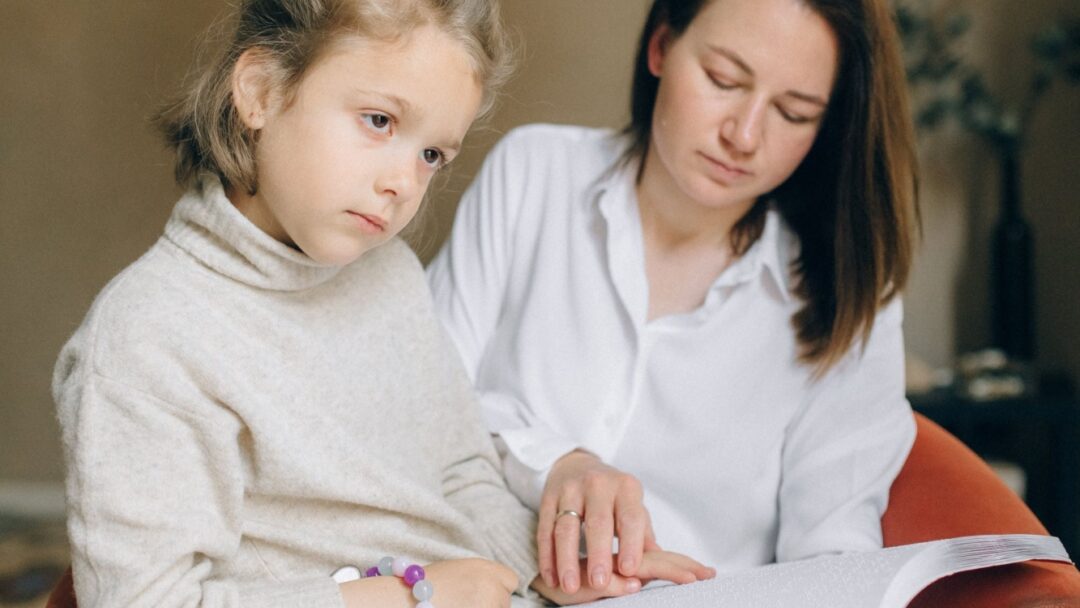
Latest books from the Vision Australia library - including childhood tales and a John Grisham thriller.
Childhood tales and a Grisham thriller
Hear This by Vision Australia
20/10/2023
•28 mins
Audio

Latest books from the Vision Australia library - including a novel by Australian Sam Drummond.
Oz writer Sam Drummond
Hear This by Vision Australia
3/11/2023
•27 mins
Audio

Books from the Vision Australia library - including a memoir by a friend of Anne Frank.
Anne Frank's friend
Hear This by Vision Australia
10/11/2023
•28 mins
Audio

Book reviews and excerpts from Vision Australia library - including a wartime struggle for survival.
Survival in wartime
Hear This by Vision Australia
24 November 2023
•27 mins
Audio

A special seasonal edition reviews Christmas murder stories available from Vision Australia library.
Yuletide Homicide
Hear This by Vision Australia
8 December 2023
•28 mins
Audio

Veteran talking book reader Tony Porter reviews his many voices.
The many voices of Tony Porter
Hear This by Vision Australia
5 January 2024
•27 mins
Audio

What's new in Vision Australia library of Braille and audio books - including new Australian works.
New Australian books
Hear This by Vision Australia
12 January 2024
•28 mins
Audio
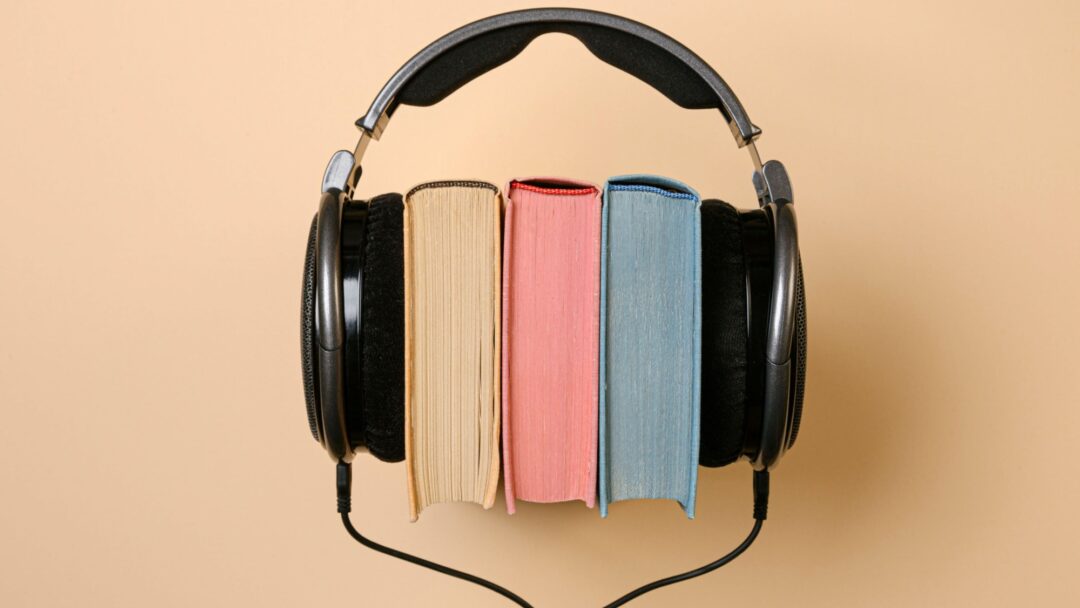
Vision Australia librarian talks of coming events and latest books for people with blindness and low vision.
Coming events and new books
Hear This by Vision Australia
26 January 2024
•28 mins
Audio

Review of books from the Vision Australia library - from a broad international range.
Books from Japan, US, Australia and Sweden
Hear This by Vision Australia
2 February 2024
•27 mins
Audio

New books in the Vision Australia library - from E.L.Doctorow to Alan Bennett.
Reasons Not to Worry, Wild Things... and Alan Bennett
Hear This by Vision Australia
9 February 2024
•28 mins
Audio

Latest events and books from Vision Australia Library, featuring its Community Engagement Co-ordinator.
Vision Library latest with Leeanne
Hear This by Vision Australia
16 February 2024
•28 mins
Audio

Features Jamie Kelly of Vision Australia Library, updating us on its website catalogue. And other new books.
Vision Australia library online, and Jelena Dokic
Hear This by Vision Australia
23 February 2024
•29 mins
Audio

New books in the Vision Australia Library - in this edition, books about paintings.
Books about paintings
Hear This by Vision Australia
1 March 2024
•26 mins
Audio

From the Vision Australia Library, women's memoirs on International Women's Day.
Women's memoirs on IWD
Hear This by Vision Australia
8 March 2024
•28 mins
Audio

Coming events and books at Vision Australia Library for people with blindness or low vision.
Coming events at Vision Library - and a Kerouac classic
Hear This by Vision Australia
15 March 2024
•29 mins
Audio

Latest books from Vision Australia Library - this week, some top Oz and worldwide novels.
Top Oz and world novels
Hear This by Vision Australia
29 March 2024
Audio

Coming events at Vision Australia Library in connection with the Melbourne Writers' Festival.
Melbourne Writers' Festival
Hear This by Vision Australia
5 April 2024
•28 mins
Audio
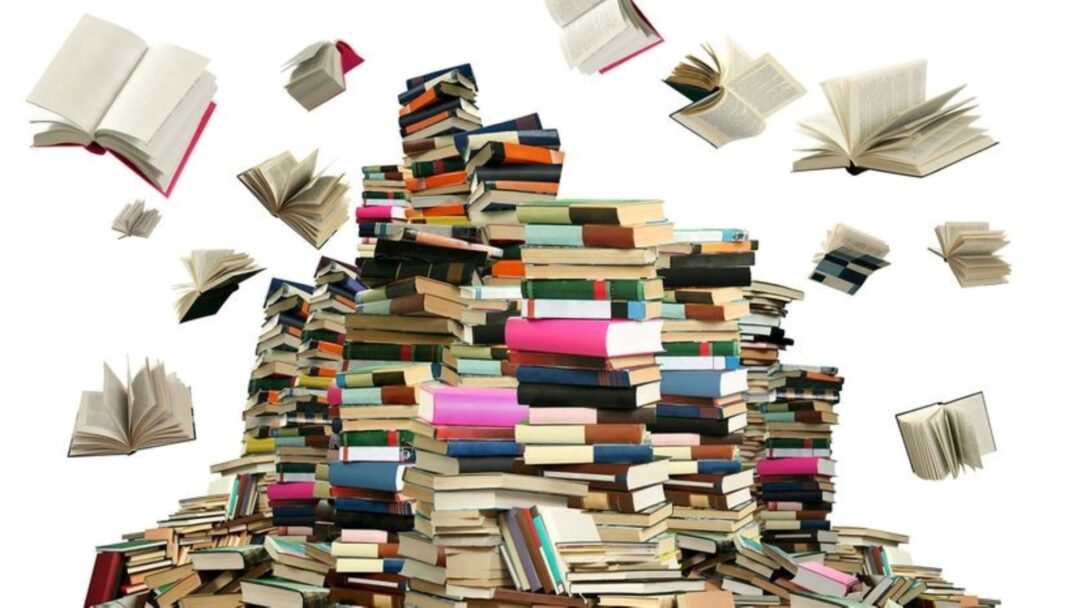
Coming events and new books at the Vision Australia Library for blind and low vision people.
Event update and more new books
Hear This by Vision Australia
12 April 2024
•29 mins
Audio

How printed works are brought to life as audio books in the Vision Australia Library.
Audio book narrators
Hear This by Vision Australia
19 April 2024
•28 mins
Audio

ANZAC Day edition of this series from the Vision Australia library for people with blindness or low vision.
ANZAC sniper
Hear This by Vision Australia
26 April 2024
•28 mins
Audio

From the Vision Australia library: a South African childhood, AI issues and an American First Lady.
Apartheid, AI and Michelle Obama
Hear This by Vision Australia
3 May 2024
•27 mins
Audio

Forthcoming Vision Library events including those connected with the Melbourne Writers' Festival.
Melbourne Writers' Festival and Vision Library events
Hear This by Vision Australia
10 May 2024
•28 mins
Audio

Murder mystery novels available from the Vision Australia library are reviewed and sampled.
Murder mysteries
Hear This by Vision Australia
24 May 2024
•27 mins
Audio

Celebrating National Reconciliation Week with books from Vision Australia Library... plus some user favourites.
Reconciliation Week and Reader Recommends
Hear This by Vision Australia
31 May 2024
•27 mins
Audio
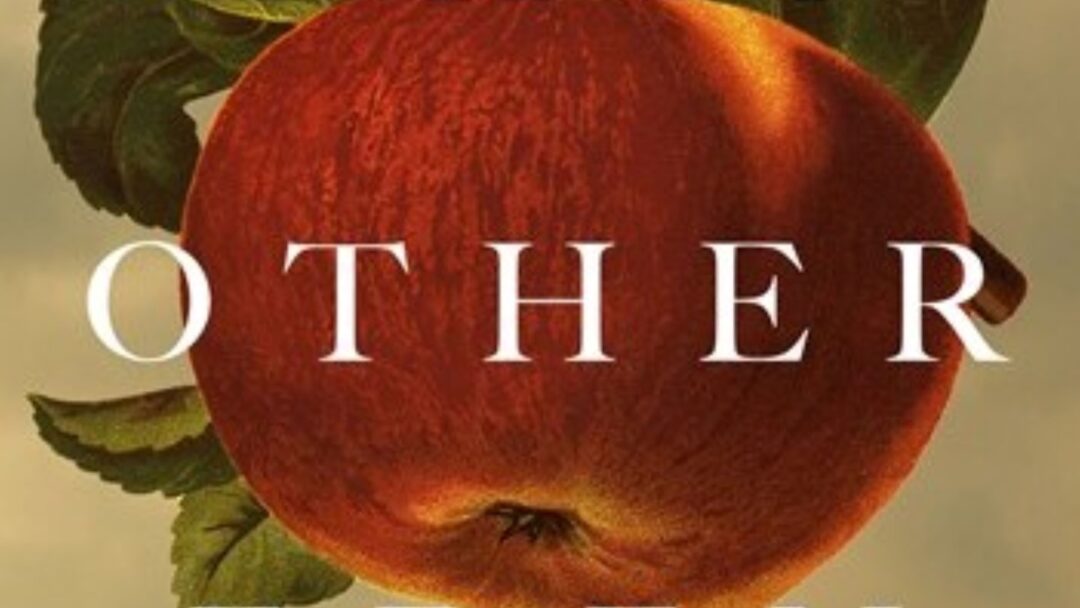
Reader Recommends and crime fiction from the Vision Australia library for blind and low vision people.
This Other Eden... and some other readin'!
Hear This by Vision Australia
7 June 2024
•29 mins
Audio

Vision Library's coming community events and latest books for people with blindness or low vision.
Coming events and latest books
Hear This by Vision Australia
14 June 2024
•29 mins
Audio

Books in Vision Australia library for people with impaired vision - this time on the theme of Darkness.
Darkness
Hear This by Vision Australia
21 June 2024
•29 mins
Audio

New books in Vision Library including the Wikileaks founder's autobiography.
Julian Assange - by the man himself
Hear This by Vision Australia
28 June 2024
•29 mins
Audio

Community events soon to happen at Vision Australia Library for people with blindness and low vision.
Coming events at Vision Australia Library
Hear This by Vision Australia
5 July 2024
•28 mins
Audio

Two well-known authors open the latest look at new publications in the Vision Australia Library.
Hilary Mantel, Bret Easton Ellis and more
Hear This by Vision Australia
19 July 2024
•27 mins
Audio

Vision Library series, this episode features new Australian crime novels written by women.
Australian sisters in crime
Hear This by Vision Australia
26 July 2024
•28 mins
Audio

Latest publications in the Vision Library, starting with a biography of John Farnham.
He's the Voice
Hear This by Vision Australia
2 August 2024
•27 mins
Audio

Latest reviews and readings from publications in the Vision Library for people with print disabilities.
Race, history and Black Ducks
Hear This by Vision Australia
9 August
•28 mins
Audio

Books from Vision Library reviewed include a Julie Andrews memoir, Guardian newspaper picks and more.
Julie remembers and The Guardian recommends
Hear This by Vision Australia
30 August 2024
•27 mins
Audio

An Australian author discusses her works, plus reviews of other books in the Vision Library.
Jane Rawson - author
Hear This by Vision Australia
6 September 2024
•28 mins
Audio

Update on forthcoming events and available publications at the Vision Australia Library.
What's On at Vision Australia Library
Hear This by Vision Australia
13 September 2024
•27 mins
Audio

Accessible Vision Library books reviewed, including murder mysteries and award nominees.
Mysteries and prize contenders
Hear This by Vision Australia
20 September
•27 mins
Audio

Reviews and events at Vision Australia Library to mark World Sight Day, October 10.
World Sight Day and Barbra Streisand
Hear This by Vision Australia
4 October 2024
•28 mins
Audio

What's on in the Vision Library, and the works of Ira Levin and Han Kang.
Library events, Ira Levin and Han Kang
Hear This by Vision Australia
11 October 2024
•28 mins
Audio
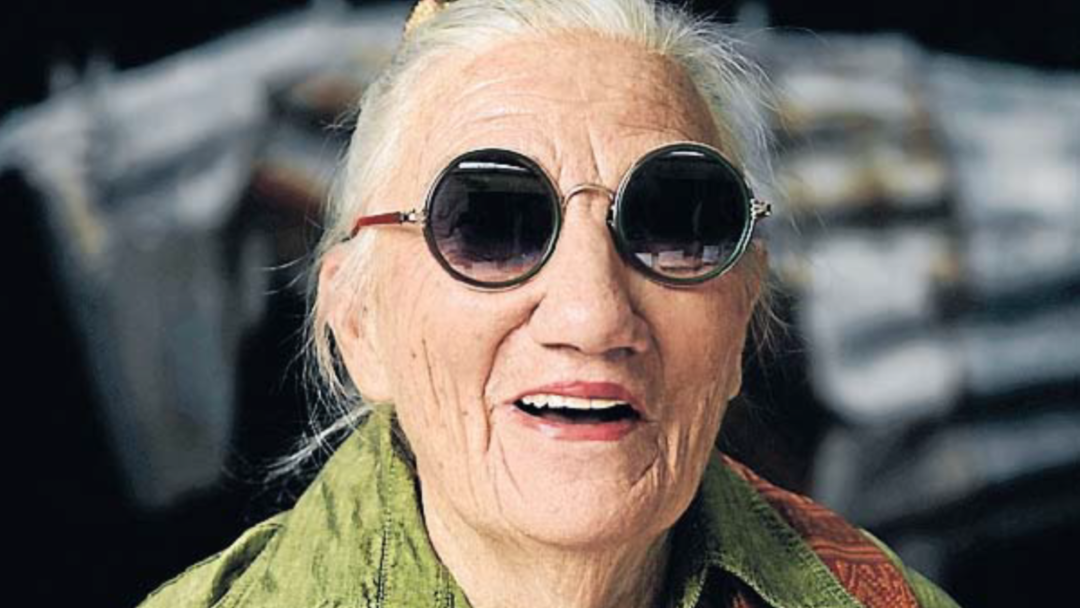
Vision Library publications reviewed - opening with some tributes to writers passed.
Tributes, and more
Hear This by Vision Australia
18 October 2024
•28 mins
Audio

Reviews and readings from Australian, British and US books in the Vision Australia Library.
Tomorrow, Questions, Mistresses and Murder
Hear This by Vision Australia
25 October 2024
•28 mins
Audio

Reviews and readings from books available in the Vision Australia Library.
From Australian thrillers to the US and South Africa
Hear This by Vision Australia
1 November 2024
•28 mins
Audio

A wide range of books in the Vision Australia Library are reviewed and sampled.
Leonard Cohen, ghosts and Broken Hill
Hear This by Vision Australia
8 November 2024
•28 mins
Audio

Events and publications at Vision Australia Library for people with blindness or low vision.
Vision Library: what's in and what's on
Hear This by Vision Australia
15 November 2024
•28 mins
Audio

Interview with an award-winning author about her life and work... plus more publications in the Vision Australia Library.
Jacqueline Bublitz
Hear This by Vision Australia
22 November 2024
•28 mins
Audio
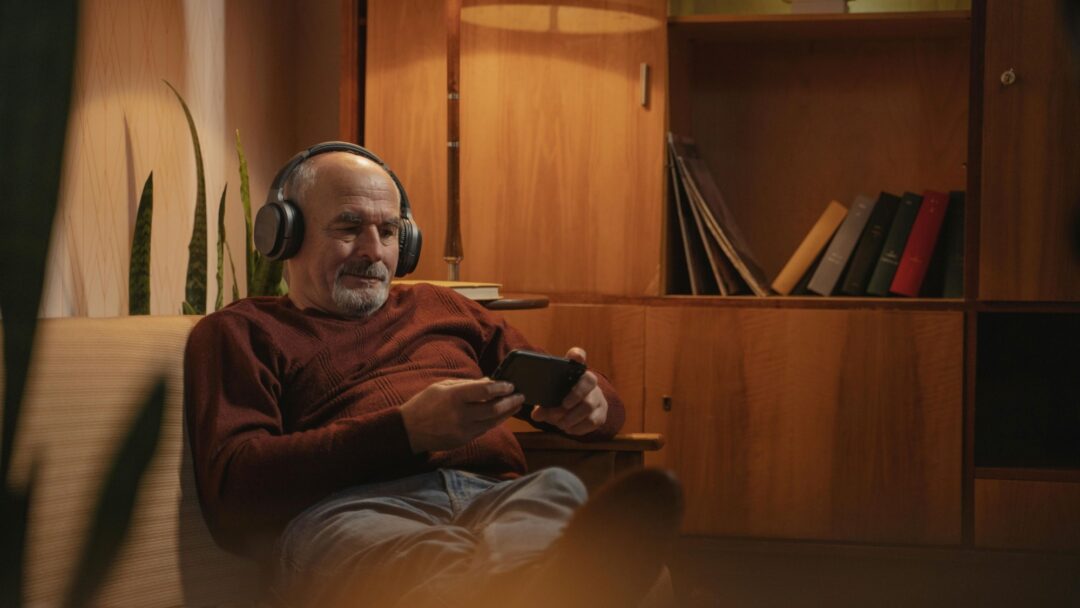
Vision Australia Library for people with vision impairment updates its coming events and latest publications.
Coming soon to the Vision Library
Hear This by Vision Australia
13 December 2024
•28 mins
Audio

Christmas-themed books in the Vision Australia Library for people with vision impairment.
Christmas offerings
Hear This by Vision Australia
20 December 2024
•28 mins
Audio

New books for 2025, fiction and non-fiction - vale Leunig!
Fiction and non-fiction for the New Year
Hear This by Vision Australia
3 January 2025
•27 mins
Audio

Reviews of varied books from the Vision Library - some centring on radio stations or radio plays.
Radio drama
Hear This by Vision Australia
10 January 2025
•29 mins
Audio

What's On at Vision Australia Library - and latest publications accessible to people with blindness and low vision.
Coming events in 2025 - and latest publications
Hear This by Vision Australia
24 January 2025
•28 mins
Audio

Writings on Marianne Faithfull and award-contending works in the Vision Australia Library are reviewed.
Vale Marianne... and award-nominated books
Hear This by Vision Australia
31 January 2025
•28 mins
Audio

Special guest highlights interesting events in libraries around the country... and some new books.
What's new in libraries around Australia
Hear This by Vision Australia
7 February 2025
•27 mins
Audio

Accessible publications chosen for February 14: Library Lovers' Day, Valentines Day and World Radio Day.
Library Lovers' Day
Hear This by Vision Australia
14 February 2025
•29 mins
Audio

An update on Vision Australia Library's coming events and latest blind-accessible books.
Coming events and new books
Hear This by Vision Australia
25 February 2025
•29 mins
Audio

Reviews of accessible books including a John Steinbeck classic, and news of a forthcoming writers' festival.
Brimbank and Steinbeck
Hear This by Vision Australia
28 February 2025
•29 mins
Audio

Coming courses and other events at Vision Australia Library - and latest accessible books.
Courses, events and latest publications
Hear This by Vision Australia
14 March 2025
•28 mins
Audio

Special with interviews and readings at a writers' festival and writing competition in Melbourne.
Brimbank Writers' and Readers' Festival and Micro-fiction Competition
Hear This by Vision Australia
21 March 2025
•30 mins
Audio

An interview with an Australian woman writer and reviewer, about her favourite female authors.
Women authors with Stella Glorie
Hear This by Vision Australia
28 March 2025
•29 mins
Audio

Reviews and excerpts from accessible works in the Vision Australia Library, starting with a new Australian novel.
Reader recommends a Deal
Hear This by Vision Australia
4 April 2025
•27 mins
Audio

Vision Australia Library brings news of accessible events at the forthcoming Melbourne Writers' Festival.
Melbourne Writers' Festival 2025
Hear This by
11 April 2025
Audio

Vision Australia Library pays tribute to the late Australian author of the Miss Fisher mysteries and more.
Vale Kerry Greenwood
Hear This by Vision Australia
18 April 2025
•28 mins
Audio

ANZAC Day special featuring reviews and short readings from books about the First World War.
Reading about World War 1
Hear This by Vision Australia
25 April 2025
•28 mins
Audio

Reviews and readings of user favourites in Vision Library - including an Antarctic adventure.
Reader recommended
Hear This by
2 May 2025
•28 mins
Audio

What's accessible in the Vision Australia Library - including new books by Kate Grenville and Eric Idle.
Always look on the bright side of... time and place
Hear This by Vision Australia
9 May 2025
•29 mins
Audio

First part of an interview with an Australian author, military historian and war veteran.
Barry Heard's true tales of war (part 1)
Hear This by Vision Australia
16 May 2025
•28 mins
Audio